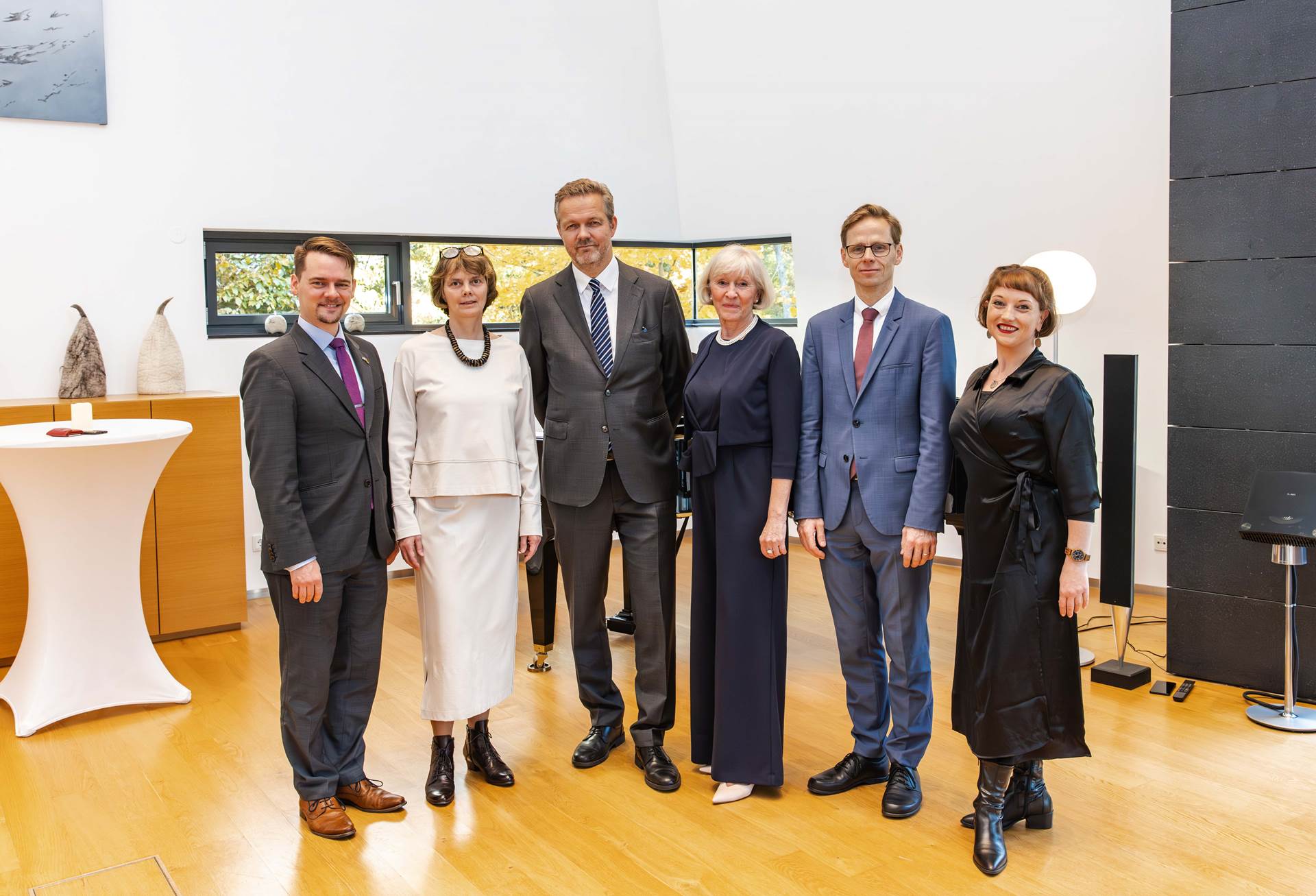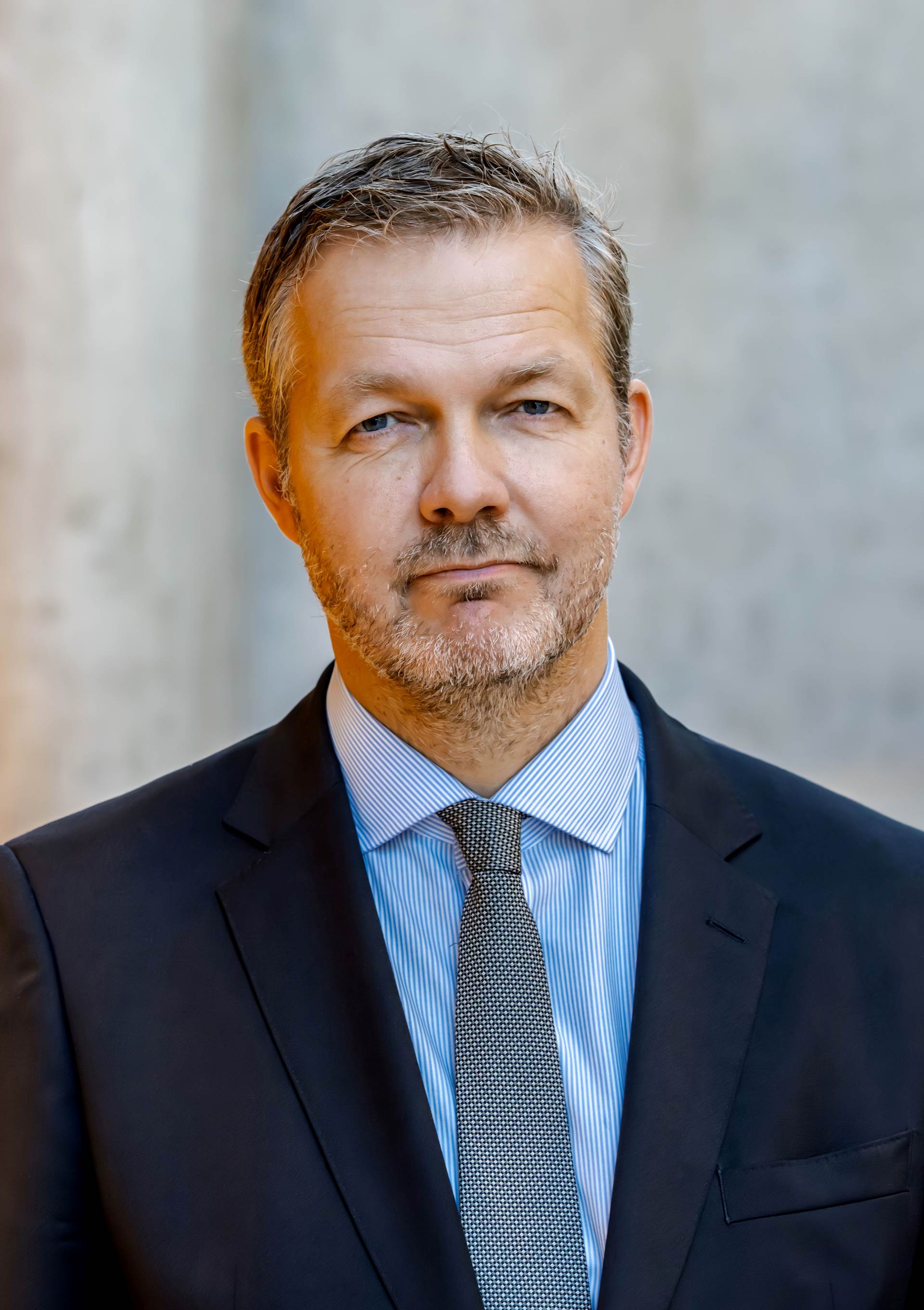Embassy Information
The Embassy of Iceland in Germany has started its work in 1952, right after the establishment of the diplomatic relations between both countries.
The Embassy in Berlin is also sideaccredited to the Czech Republic and works with the assistance of seven Icelandic honorary consulates, thereof six in Germany.
The Embassy´s duties are based on the political, economical and cultural exchange between Iceland and the other countries. To the daily duties also belong consular functions and the response to common inquiries about Iceland.
Information about Iceland's consulates in the embassy's jurisdiction can be found below.
Embassy of Iceland in Berlin
AddressRauchstraße 1
10787 Berlin
Phone: +49 (0)30 -50 50 40 00
Open all week days from 09:00 - 12:00 and 13:00 - 16:00
Phone hours: 13:00 - 16:00

Ambassador
Auðunn atlason
Born in Reykjavik, Iceland, 4 February 1971
Professional Experience
| 2024 | Ambassador of Iceland to Germany |
| 2024 | Non-resident Ambassador to the Czech Republic |
| 2022 | Foreign Policy Advisor to the Prime Minister, Prime Minister´s Office |
| 2022 | Ambassador of Iceland to Finland, non-resident Ambassador to Estonia, Latvia and Lithuania |
| 2018 | Deputy Director General, Directorate for International and Security Affairs, MFA |
| 2018 | Director for Nordic Cooperation, MFA |
| 2016 | Acting Head of Personnel and Human Resources, MFA |
| 2013 | Permanent Representative of Iceland to the OSCE in Vienna, and to IAEA, CTBTO and UNOV |
| 2013 | Ambassador of Iceland to Austria, non-resident Ambassador to Slovenia, the Czech Republic, Hungary, the Slovak Republic, Bosnia and Herzegovina |
| 2011 | Director, Department for Information, MFA |
| 2009 | European Policy Advisor to the Foreign Minister, MFA |
| 2009 | Acting Director, Department for External Trade, MFA |
| 2008 | Counselor, Defense Department, MFA |
| 2006 | Deputy Chief of Mission, Embassy of Iceland New Delhi |
| 2002 | Counselor, Embassy of Iceland, Washington D.C. |
| 2001 | Director of the Icelandic Crisis Response Unit, MFA |
| 1999 | First Secretary, Directorate for Administration, MFA |
| 1997 | International Secretary, Parliament of Iceland, Nordic Council, PACE and the Parliamentary Assembly of WEU |
| 1997 | Part-time lecturer, Department for Political Science, University of Iceland |
Languages and Education
Icelandic (native), English (fluent), German (fluent), Danish/ Swedish/ Norwegian (intermediate)
Diplom Politikwissenschaft, Freie Universität Berlin (1996)

Connections between countries and political alliances have a long history in Northern Europe. Denmark, Finland, Iceland, Norway and Sweden comprise the so-called "Nordic Region" and have a common representation of interests in the Nordic Council (founded in 1952) and in the Nordic Council of Ministers (founded in 1971).
After the fall of the Berlin Wall and the German Parliament's resolution to relocate the capital from Bonn to Berlin, the often considered idea of a common Nordic embassy complex was able to be realised. The architectural competition was won by the Austrian/Finish architectural firm Alfred Berger and Tiina Parkkinen. The vision of five national embassy buildings with an open common building, the so-called Felleshus (house for all), enclosed by a band of copper, corresponded to the fundamental idea of individual freedom combined with a feeling of unity. Each of the embassy buildings was designed by an architect from that particular country.
The groundbreaking event was held in May 1997 with the ambassadors from the Nordic countries turning the first spade of dirt together with a five-handled shovel. In October 1999, only 29 months later, the embassies were officially opened in a joint ceremony. The copper band encloses all five embassies and the Felleshus. The area inside the copper band, the plaza, is transected by geometric lines. The three water basins between the embassy buildings are an architectural reference to the seas connecting the Nordic countries.
The embassy buildings are grouped to correspond to the arrangement of the countries on the map. The name Felleshus denotes the sense the building imbues and what it is used for - a house for all, a house in which to meet and interact. The Felleshus has an auditorium for concerts, readings, film viewings and conferences, exhibition spaces, conference rooms, a spacious terrace and a restaurant. The consular departments of the five countries are also housed here.

